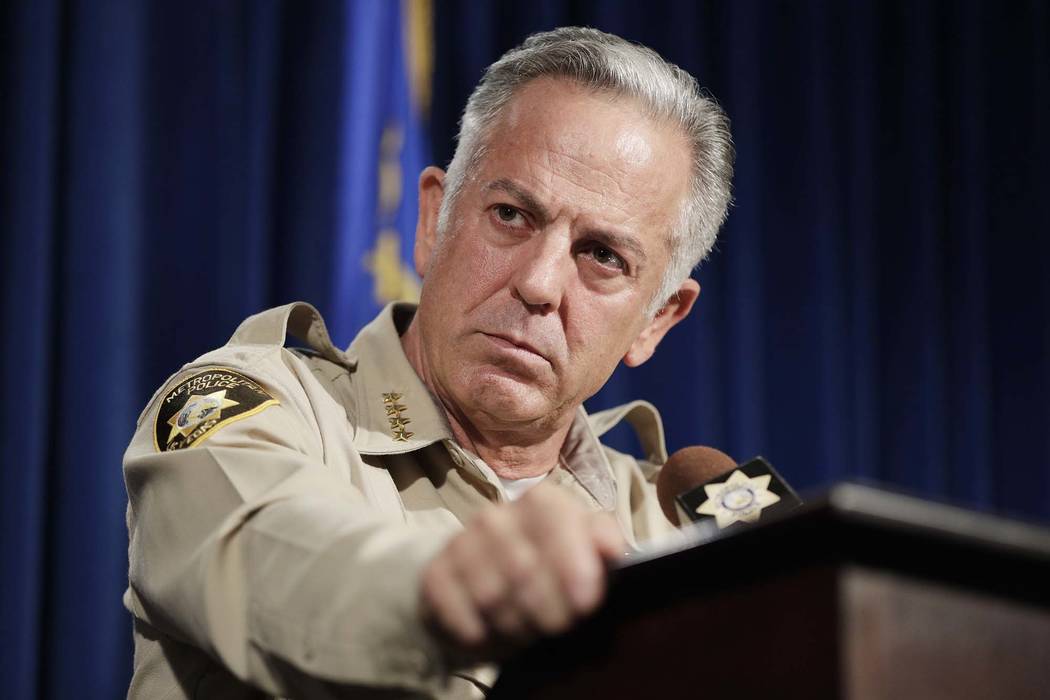EDITORIAL: ‘Zero evidence’
Sheriff Joe Lombardo talks a good game about transparency. Too often, however, that’s all it is — talk.
As is the case at many law enforcement agencies, the insular culture of secrecy remains ingrained at the Metropolitan Police Department. That starts at the top.
For months, Metro officials dragged their feet in terms of releasing documents, video footage and other material related to the horrific Oct. 1 shooting on the Strip. After two District Court judges ordered the department to provide the information, Sheriff Lombardo dug in, taking the matter to the Nevada Supreme Court. Only when the justices refused to intervene did Metro drop its obfuscations — a full seven months after the massacre.
The pattern continues.
On Wednesday, a District Court judge admonished Metro attorneys for the department’s willful refusal to follow the state’s public records law. The case involves a Review-Journal request dating back to February 2017 for documents related to sex trafficking cases and prostitution arrests. As has become distressingly routine, Metro responded as if it has no duty to follow the law, putting forth a roster of the-dog-ate-my-homework excuses. But Judge Joe Hardy Jr. wasn’t buying that balderdash.
The department has provided “zero evidence” of why it refuses to comply, the judge noted, which “almost leaves me speechless.” He went on: “Metro has forced the petitioner to go round and round and spin wheels and incur attorneys fees and costs it should never have incurred. Metro really needs to take its obligations seriously.”
Judge Hardy said he was offering Metro a “last opportunity to comply” with the law by engaging in “good faith” negotiations with the newspaper to resolve the dispute. Given Metro’s inexcusable track record, though, he said he is “not very confident that will happen.”
Let’s hope the judge is wrong. It’s time for Sheriff Lombardo to make good on his campaign rhetoric about the importance of accountability. His department’s intransigence will ultimately be costly for the taxpayers, who foot the bill when Metro wastes time and manpower in a vain effort to dodge the state’s public records statute.
But more importantly, a police agency that refuses to recognize it has a responsibility to the community to operate as openly and transparently as possible without compromising its mission will eventually become an incubator for corruption and injustice and risks losing the public’s trust and confidence. That’s to the detriment of the great majority of Metro officers who hold themselves to high standards as they toil each day to serve and protect their fellow Southern Nevadans.
The sheriff should heed Judge Hardy’s advice. In the meantime, state lawmakers should pay heed. This case stands as yet another example of why the Legislature needs to reform the open records law to include stricter punishments for agencies and individuals who willfully and repeatedly defy its intent.




























